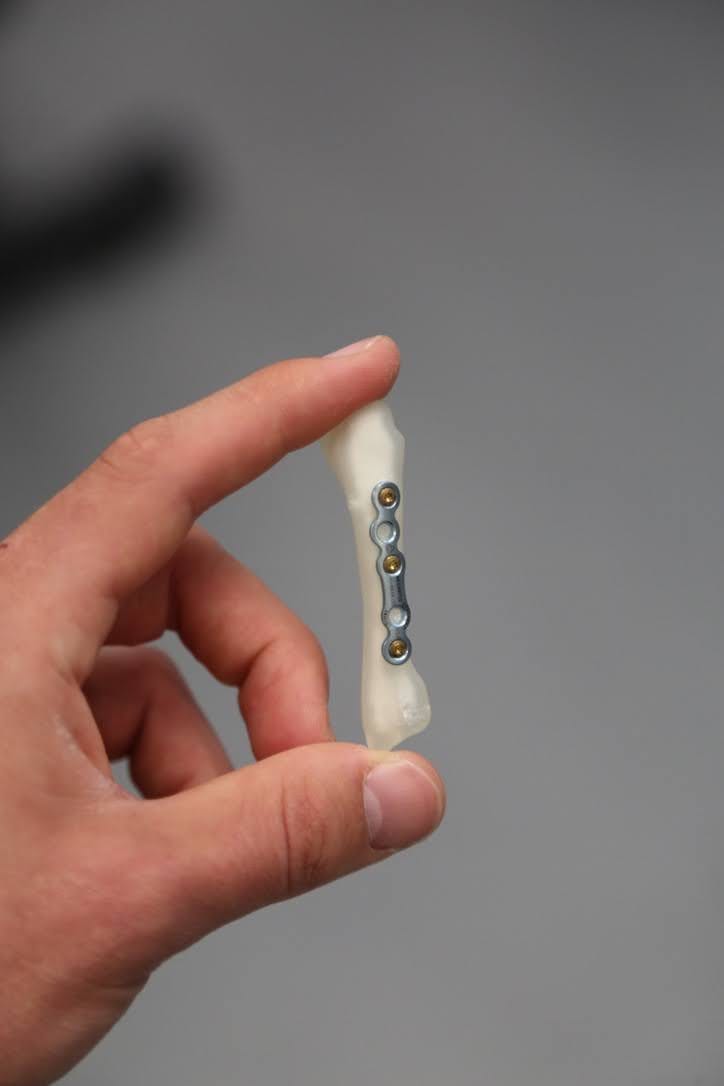In this week's edition
- ✍️ Letter from P'Fella
Building a skill school: Not another weekend course. - 🤓 The Sunday Quiz
How well do you know the bone. - 🖼️ Image of the Week
3D printed bone. - 🚑 Technique Tip
Microsurgical arena exercise. - 🎈 Upcoming Events
Reminder: BAPRAS Congress 2025 - 🔥 Articles of the Week
Synehtic micro simulators, 3D printing, & VR in surgical training: With 1-sentence summaries. - 💕 Feedback
Suggest ideas & give feedback!
A Letter from P'Fella
Building a Skill School: Not Another Weekend Course
The Problem with Courses
Here’s the dirty little secret: the course industry thrives on that forget-relearn-forget cycle. It’s the surgical version of a gym membership. You keep coming back, not because it works, but because it doesn’t stick. And let’s not pretend the faculty are always stellar. Too often, they’re there because of reputation, not relevance. You can feel it when the teaching turns into a performance, more ego than education.
The Idea: A “Skill School”
Leo Gundle from Claribone dropped a simple but radical idea: what if we built a Skill School instead of a course? Not a weekend high. Not a one-off lecture. But a place where skills are built, tracked, and reinforced over time.
Imagine a system that:
- Identifies your weak points with brutal honesty.
- Reinforces techniques through spaced repetition and simulation.
- Matches you with real surgical cases once your competence is proven.
- Keeps faculty accountable, not just for showing up, but for teaching effectively.
This isn’t about certificates or selfies or "feeling honoured & blessed" on Instagram It’s about measurable skill acquisition. Something no PowerPoint or panel discussion can deliver.
The Real Takeaway
Plastic surgery is too complex to be learned in bursts of inspiration. If we’re serious about developing surgeons, we need to stop selling them weekend confidence and start giving them durable competence. A Skill School doesn’t make you feel good for two days. It makes you better for your career
What do you think? Are we ready to move beyond the course circuit? Would you join a Skill School that tracks real improvement, not attendance? Drop your thoughts. This one could change how we train, teach, and stay sharp.
With love,
P’Fella ❤️
The Sunday Quiz
How Well Do You Know The Bone
Join The Weekly Quiz in each edition of thePlasticsPaper. This is the sixth round of seven rounds!
The top scorer wins one our Foundations textbook at a discount!
Image of the Week
3D Printed Bone
This week’s image illustrates a 3D-printed phalangeal bone fitted with a fixation plate, a practical model used for surgical planning, simulation, and teaching.
3D printing continues to transform surgical education, allowing trainees to visualize fracture patterns, test implant placement, and rehearse complex reconstructions — all without compromising patient safety. Models like this one make anatomical learning and procedural precision far more accessible.

Technique Tip
Microsurgical Arena
This week, we’re featuring a video walkthrough of a microsurgical arena exercise, ideal for sharpening your fine-motor skills and instrument handling.
It walks through instrument handling, suturing angles, and positioning to help trainees replicate realistic operative conditions outside the OR.
Upcoming Events
Reminder: BAPRAS Congress 2025
This year’s theme, “Forward,” focuses on innovation, collaboration, and the future of plastic surgery.
If you’re attending, come say hi! I'd love to connect in person.
Learn more about BAPRAS Congress 2025.
Articles of the Week
3 Interesting Articles with One-Sentence Summaries
Synthetic microsurgery simulators offer a low-cost, ethical, and effective way to build and assess microsurgical skills, helping trainees master basic to advanced procedures before progressing to live or cadaveric models.
Using realistic 3D-printed intestinal models significantly improved medical students’ suturing performance, speed, and engagement compared to standard pads.
Virtual reality is transforming plastic surgery education with technical safety and decision-making skills through immersive simulation, and holds strong promise for integration into standardized surgical training curricula.


